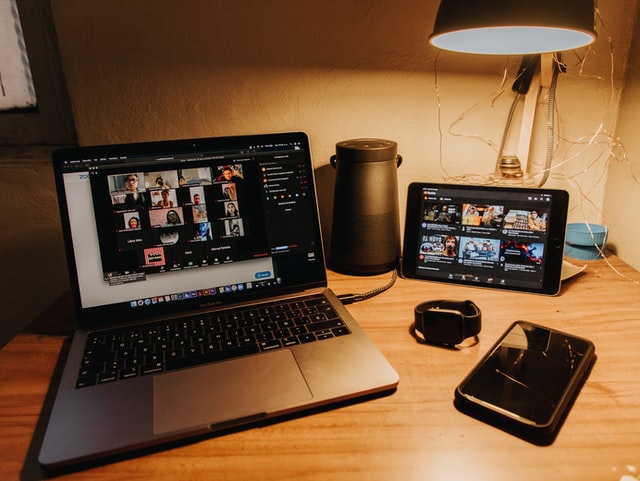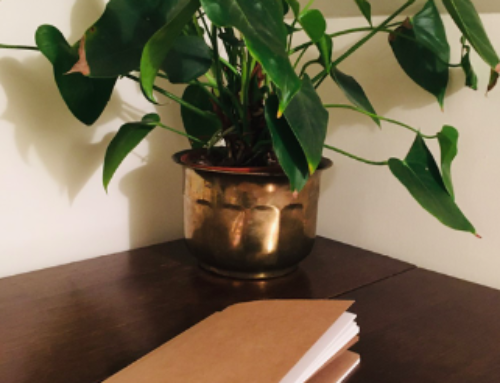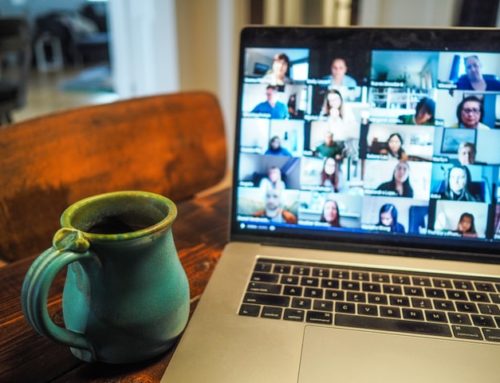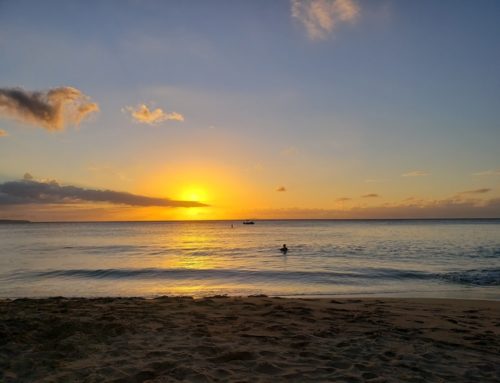Both the seminars I’m teaching this spring were already concerned with tracking histories of the political present, but their themes have become even more salient as the semester and our lives have been transformed by the novel coronavirus. In my class, “Global Im/Mobilities: Borders, Migration, and Citizenship,” we had been discussing attempts to regulate movement; incarceration and confinement; the infrastructures and aesthetics of borders; populism and the far-right; the sanctuary movement; and the various forms of inclusion and exclusion enacted in the name of “citizenship.” These were never abstract issues, particularly in Texas and particularly for students of color, who are the majority in our seminar. Racisms old and new intensified and proliferated as the virus displayed a recalcitrant mobility in the face of travel restrictions, government lockdowns, and quarantines. Asian and Asian-American students reported deeply unsettling episodes of Sinophobic harassment. Latinx students worried with acute prescience about how attempts to “contain” the virus would provide cover for the ongoing detention and deportation of undocumented people whose labor is deemed essential by the state, even as their lives are not. Such parallels emerged as well in my other class, “Europe and Its Others: Race, Religion, and Multiculturalism,” as the virus exposed once again the fragility of the European project.
On Sunday March 8th, the university announced that the coming week’s classes would be canceled to give faculty two weeks (including spring break) to prepare for the transition to online instruction. After checking-in with colleagues and students that night, I hastily packed up what I could of the tiny studio apartment I had been renting in Houston and booked a flight to New York for the next day, pushing up by four days a previously scheduled visit home. As I boarded my flight, I was subsumed by a deep relief, tempered by fear, and an anticipatory nostalgia that took me by surprise: I was going to be reunited with my partners in the home we shared, where I felt most safe; but I was unsure when (or if) I would be able to return to this other, new life I had been building. I felt strangely guilty for leaving, but I was more worried about the prospect of being separated from my partners and our network of queer kin, of being unable to offer or receive care as a pandemic raged.
The three of us have been under lockdown in our apartment with our two cats for the past seven weeks, here in the epicenter. Like so many others, I am deep in the disorientations of the protracted time of emergency. Today, I know that it’s just past 7pm because moments ago we participated in one of the many new rituals that mark the era of Covid-19. For a few minutes each day, we reclaim an urban soundscape that has alternated between eerie silence, constant sirens, and unusually loud birdsong: we joined with neighbors up and down our block, sticking our heads out windows, clapping, cheering, banging pots and pans, and waving to show our love for all the people risking their lives for ours. But this ritual is for us too. We need to hear each other, to mark time, to be reminded that it’s possible to feel otherwise. Last weekend, our downstairs neighbor died from the virus. I couldn’t hug his partner when I saw her, so today I banged our pot extra loud for both of them. Once the cheers subside, people take turns blasting a single song out into the valley of the street—a song that someone has identified as of and for this moment: Alicia Keys, Frank Sinatra, something soul maybe, or disco, house, or reggae. People may be living and dying more alone here these days, but they aren’t doing it in silence.

These acts of solidarity also remind me of teaching, one of the few parts of my life these days where agency feels like doing rather than abstaining. Last Thursday was my final day of teaching, which meant workshopping final paper proposals, reviewing the syllabus for things to add or remove in the future, and saying our goodbyes remotely. Much has changed since we resumed our classes, or attempted to. Most of my students are scattered across multiple time zones and continents. Many lack reliable internet access. Some are in relatively comfortable positions, others are in precarious ones; many are living with parents and family members who have lost their jobs and incomes, and many others have been forced to find ways to be with family members they don’t feel safe with; several students have had multiple family members hospitalized with Covid-19; one is caring for a terminally ill parent. It goes on and on.
During the two weeks I had to prepare for the new regime, I read all the think pieces, talked to colleagues, followed comments on social media, and conferred with my students. I decided that my priority would be to salvage what we could of our small seminar and try to foster some continuity, while explicitly recognizing how difficult or even impossible that would be. Most learning would now be asynchronous. I changed the grading rubric to privilege participation and assignments during the first half of the semester; going forward, I gave greater weight to smaller weekly assignments than to the final paper. Weekly readings were significantly trimmed, with an eye toward keeping material that was most relevant to the pandemic. Student presentations—which used to begin our classes each Tuesday and Thursday—would now be due as PowerPoints or PDFs on Fridays. Reading responses—which used to be submitted by alternating groups of students twice a week—would now be due on Sundays. We had already been using Canvas for these sorts of assignments, so this was an easy transition that gave students more time to do their work, while still making some discussion possible. For those students who had reliable internet access and lives that permitted it, we had voluntary Zoom sessions, which were recorded and distributed. Arrayed across each other’s screens during these “classes,” I would typically spend the first half-hour asking students where they were, if they were safe, how they were doing, and what they were feeling. I shared more than I normally would about my life in New York, and how I too was struggling, anxious, and uncertain. Those of us with pets conscripted them into service as comfort animals for the group, posing them in front of our webcams.
Unlike many of my colleagues, I don’t have young children I need to care for or to try to teach, nor do I have hundreds of students, or much in the way of service work in my position as a postdoc. So I’ve tried to take advantage of some of the privilege of my position to reconfigure previous understanding of my teaching obligations and boundaries. I made myself available for office hours by any medium necessary. When this all began, I was feeling especially productive. I had been writing more than ever before, teaching better and with more joy, surprised to have finally struck a provisional balance between life and work. Now, it all blurs. Deadlines enter new states of suspension: conference panels I spent months organizing have rightly been canceled even as I must now finish others, knowing that these too may never take place; article revisions are overdue to a journal; a book proposal was meant to be submitted in June, etc. Neither the extended present, nor the impossible future, of these tasks feels relevant. But I am growing accustomed to all of this.
I’ve adapted to remote learning, adapted my syllabi and my expectations, and adapted to a new role that feels more like a therapist than a professor. Mindful of how this kind of emotional labor is disproportionately shouldered by women, queer and disabled folks, and faculty of color, I’ve long been committed to a feminist pedagogy of care. But being available emotionally to my students in this moment is unlike anything I have experienced before. As an only child from the Caribbean who’s survived more than a few disasters, natural and otherwise, I used to take pride in my adaptability. But more and more, I find this capacity of ours to adapt as terrifying as it is reassuring. We are being remade in ways we can’t fathom, and perhaps will never fully appreciate.
For their final assignments, students originally had the choice between a standard research paper or a mini-fieldwork project (already canceled when it became clear fieldwork might pose a risk to students). Given that access to the library was now online-only, and only available to some, I reduced the required page count by half and advised them to focus on sources from class (which they had as PDFs). For those still eager to somehow do ethnography, I offered the option to conduct an autoethnography grounded either in the themes of the class or in their experience of the pandemic. I warned that for some students, this option might give them a sense of control and analytic distance, while for others it might add more anxiety and uncertainty. I pushed the deadline for final assignments to the last possible day and reminded everyone that they had the option to switch to pass/fail or drop the class without penalty. I continually encouraged my students to be kind to themselves and to recalibrate their expectations. I worried endlessly about whether these ferociously smart overachievers would take me at my word when I told them that for most of them school could not, and perhaps should not, be their first priority. We are all in survival mode, I told them, but not equally or equitably so. My students’ plans have been shattered, their relationships cut short, and the places they had just begun making into homes have been taken away. In the face of so much confusion and danger, they have continued to produce thoughtful work, to pose challenging questions, and to teach me. I am grateful that we had the chance to build a community together in person for the first half of the semester, because I suspect any of this would have been impossible otherwise.
Despite—or perhaps because of—everything, this semester has been the most satisfying (intellectually and emotionally) of my teaching career so far. We will all be permanently scarred by this, but my hope is that for a time we were able to continue cobbling together spaces to think or even just check-in with one another, and that this helped them feel less alone and more empowered to continue pressing forward amidst so much precarity and uncertainty. I am in awe of these students and I will miss them tremendously next year, when I will be in a new position. As someone who has often felt more called to writing and research than to teaching, I’ve never been more grateful for the privilege of thinking with students face-to-face, or more hopeful that we can do so once again.
Cite as: McDonald, Charles A. 2020. “Marking Time and Being Remade.” In “Pandemic Diaries,” Gabriela Manley, Bryan M Dougan, and Carole McGranahan, eds., American Ethnologist website, May 16 2020 [https://americanethnologist.org/features/pandemic-diaries/teaching-right-now/houston-new-york-marking-time-and-being-remade]
Charles A. McDonald is the Samuel W. and Goldye Marian Spain Postdoctoral Fellow at Rice University, where he teaches in the Department of Anthropology and the Program in Jewish Studies.




